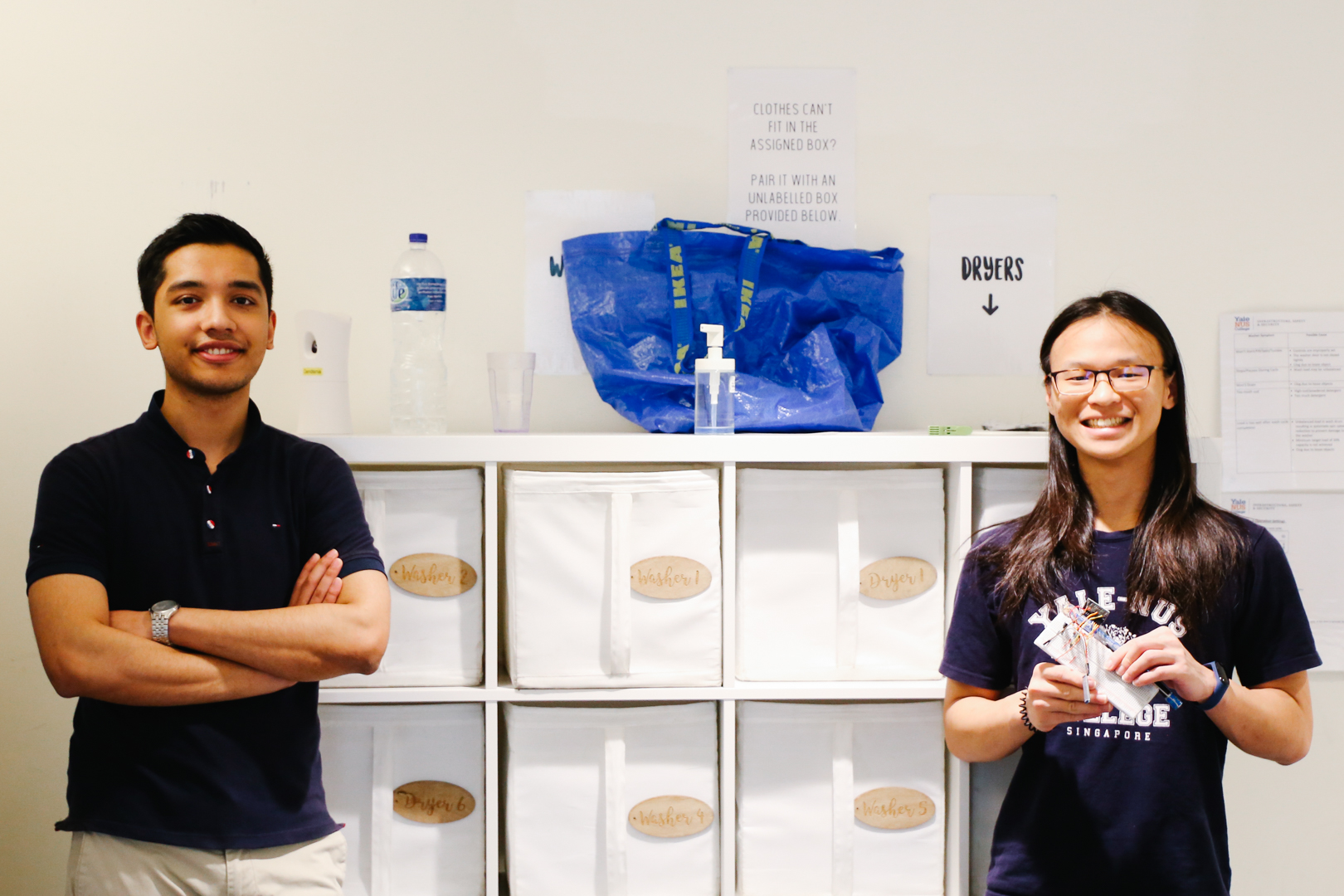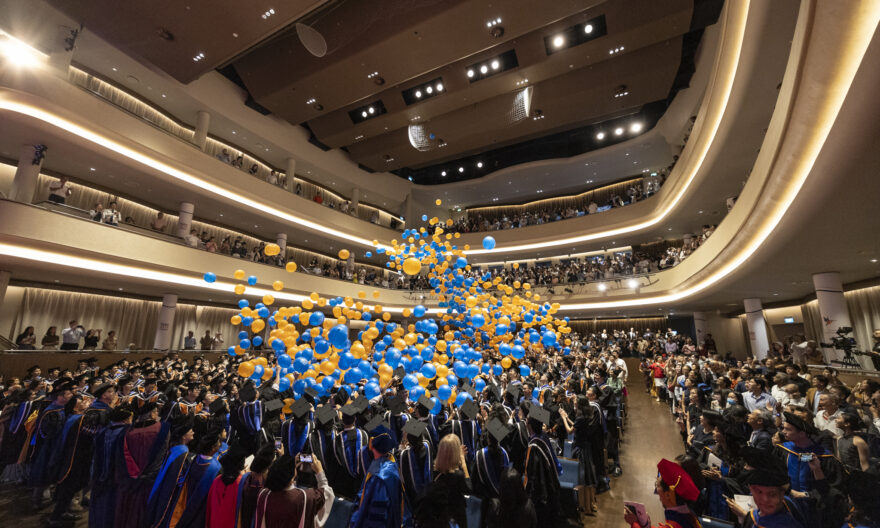Yale-NUS students use innovative technologies to make a positive impact in the community
 Shardul Sapkota (left) and Chua Yun Da with their laundry prototype. Image by Darren Ang for Yale-NUS College.
Shardul Sapkota (left) and Chua Yun Da with their laundry prototype. Image by Darren Ang for Yale-NUS College.
Yale-NUS students are passionate about innovation, and their projects demonstrate how technology can improve people’s lives by addressing the needs of different communities. Shardul Sapkota (Class of 2020) and Chua Yun Da (Class of 2022) are two such students, using their skills in computer science to better the lives of those around them.
Shardul is passionate about using his skills as a Mathematical, Computational and Statistical Sciences (MCS) major to solve problems people commonly face. With this in mind, he started working on the Laundry Viewer Platform in his junior year with then-seniors Mr Nawat Bunnag and Mr Jaime Koh (Class of 2019). This platform allows Yale-NUS students to check the availability of washing machines from a weblink, without having to head to the laundry room in person.
Shardul’s Human-Computer Interaction (HCI) research involvements in the past years provided him with the necessary technical skills to develop the Laundry Platform. HCI is a field that explores new ways through which humans interact with computers.
Last year, Shardul went to Massachusetts Institute of Technology (MIT) for his semester abroad programme where he became interested in assistive technology working with Mr Tomás Vega, a Master’s student there. As a part of his thesis, Mr Vega looked at how people with amyotrophic lateral sclerosis (ALS) could benefit from a device that enables them to use their cheek muscles to control a custom-built on-screen keyboard. This bite-controller project, Byte.it, was the subject of a short paper at an HCI conference (CHI Late Breaking Work 2019) and is now a Boston-based startup called Augmental Tech.
“Following the work at MIT, I was determined to continue working on similar projects,” said Shardul. Hence, he went on to intern at the Augmented Human Lab in New Zealand where he got involved with three projects, including one on transforming sounds to tactile sensations via a smartwatch for people with hearing impairment to experience musical sounds.
Shardul is currently working on his capstone project at the National University Hospital HCI lab. His capstone project is about inferring people’s level of focus and attention in real-time and designing meaningful interventions during attention lapses, especially in an online learning context (e.g. Coursera), to improve retention and learning gain. According to Shardul, this could be helpful, particularly for people with attention deficit hyperactivity disorder (ADHD).
Chua Yun Da (Class of 2022) similarly enjoys solving problems using technology, and is collaborating with Shardul on the Laundry Viewer Platform. “I am interested in how brain-computer interfaces will change the way we think about ourselves and the world,” he said.
The second-year student’s interest in electronics developed after learning about how new electrophysiological techniques were being used to enhance the lives of Parkinson’s patients. A member of YNC Hacks, a student organisation focused on programming and the tech industry, he is keen to leverage on technology to better lives.
Yun Da recalls the frustrating times when he had to lug his hefty load of laundry to the laundry room only to realise that all the machines were in use. Such occasions on busy days meant that laundry had to wait till the night. After hearing of similar gripes from other students, he knew he wanted to contribute to the Laundry Viewer Platform.
He spent last December and January working on new prototypes at the Fabrication Studios and in the physics laboratory with Assistant Professor of Science (Physics) Ben Olsen. “The physics research experience I had in General Physics, taught by Assistant Professor of Science (Physics) Chelsea Sharon, was crucial in helping me understand how to design and test circuits,” he said. Even though his first prototype failed, Yun Da persevered, finally succeeding after changing microcontrollers and revamping the software.
Moving forward, Yun Da aims to improve the project by adding new features such as a forecast of the most popular laundry days and times, to help students manage their schedule better. Although he encountered many failures over the course of the project, such as when he accidentally blew a fuse and melted a chip, he keeps trying, learns some skills online, and reaches out for feedback on ways to improve the project.
“Given that our pilot roll-out in Cendana has been going well, hopefully we can expand the laundry viewer platform to all three residential colleges,” said Shardul. “That’s where I see this project going– greater convenience to the College community, along with an opportunity for people to give back by being a part of the project.”





